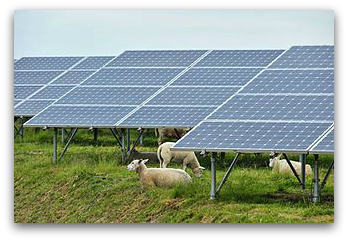
Image: Antalexion
With the increasing popularity of solar power and ongoing dialogue about the effects of climate changes comes inevitable discussions about the viability of renewable energy. While efficiency levels have grown tremendously over the years, many still worry about the feasibility of solar panels during inclement weather when the sun is not shining its brightest.
To address that issue, more attention has been focused on energy storage. However, a group of Chinese scientists are turning to the solar panels themselves to answer some of these questions.
In a recently published paper, scientist detailed a new way for solar panels to produce electricity from rain water. The way it works is pretty simple: researchers apply a thin layer of graphene to the bottom of the solar panel; when it rains, you simply flip the panel and allow the positively charged ions from the rain drops to interact with the graphene and produce electricity.
“Although great achievements have been made since the discovery of various solar cells, there is still a remaining problem that the currently known solar cells can only be excited by sunlight on sunny days,” wrote the researchers in the paper.
This from IFL Science:
The breakthrough was possible thanks to a simple chemical process: the Lewis acid-base interaction. Rain is an excellent reservoir of dissolved salts full of positive and negative ions. When rain drops hit the graphene layer it forms a pseudo-capacitor and positive ions like ammonium, calcium and sodium stimulate electrical currents.
The researchers hope that this puts momentum behind creating a solar cell that is all-weather.


